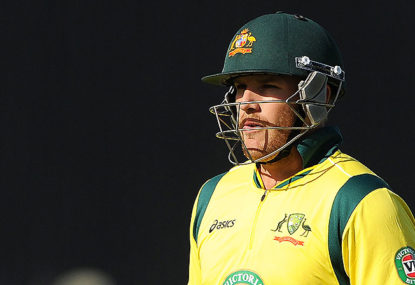Are India selecting themselves out of T20 World Cup glory?
Insanity is doing the same thing repeatedly and expecting different results. This quote is often attributed to Albert Einstein, but nobody knows if he…

It’s February 1986, Sri Lanka and the West Indies are in town for the World Series Cup. After the gruelling 15-game round robin tournament, it is down to Australia and the West Indies to decide the winner.
As an eight-year old this was as exciting as it got. Calypso cricket at is best against a young band of Aussie up and comers.
This was the big show, the only show in town and it meant something. As far as I and many others were concerned this was the world championship. Each run, each wicket was another step towards greatness.
It was tense and exciting – and most of all it mattered.
As the years rolled by, more and more cricket started showing up on our TVs. Test matches, one day series, domestic one day cricket, World Series cricket, ICC Champions Trophies, ICC World Cups, T20 internationals, IPL, Big Bash, T20 World Cups and more.
It was fantastic. Pretty much 365 day a year cricket. Heaven, I thought.
But something happened. I started to enjoy cricket less and less. Something was happening to the way we looked at the game. Because there was so much cricket on offer the results often took a back seat.
After all there was always the next game, the next series. We started talking about international one day series as warm ups to the Champions Trophy or World Cup. People started saying things like, “The West Indies series will be a good warm up for the Ashes”. Something was on the nose.
Fast forward to 2015. The dilution of the product is so great, especially due to T20 cricket, that the value of each match has been reduced to such a point that very few games seem to hold much importance at all.
Only a World Cup or Ashes brings on the excitement that we used to have for every series. Test match and ODI cricket is being cannibalised by T20 cricket.
Why sit for five days when you can see a result in four hours?
The issue here is that no matter however good a T20 match is, it cannot compare to a great one dayer, which in turn cannot compare to a great Test.
Think of the best T20 game you have ever seen. Can’t remember? What about ODI? Yeah maybe the Michael Bevan four off the last ball? Quite simply, the more you invest the bigger the return.
I can think of many great innings, bowling performances, wins, draws and losses
I don’t want my children not understanding why Test match cricket is great. I don’t want to watch players choosing not to play Test cricket for their nation in place of T20. But that is the way it is heading
All cricket needs to be relevant and important for the game to flourish.
T20 is here to stay. Bemoaning its existence (remember your parents swearing “pyjama cricket” was the beginning of the end?) is pointless. Besides, anything that can be done to keep kids from defecting to other sports at the grass roots level should be welcomed with open arms.
So how do we bring back the tension, the drama, the theatre? For what it’s worth, here’s my take.
All International series between countries should be standardised with one overall ranking system.
How it works
Each tour consists of three Tests, three ODIs and three T20s. Each group of three games is called a rubber.
Teams select a squad of 20 players that make up the entire list for all the rubbers. Each rubber is worth a point. Win the ODI series and that country earns a rubber.
The same applies for the T20’s and Test matches. First team to win two rubbers is the series champion. In the event of the series being wrapped up in the first two rubbers, the team would still be able to play for points on the rankings like percentage in AFL.
The beauty of this system is to make each and every game relevant and most of all, important.
Smaller nations can focus on ODI and T20 cricket and try and sneak a series win that way.
Established nations would have an advantage in the Tests and ODIs or all three. The system gives all nations something to work on.
Team selection and balance becomes important. Having players that play two or three formats of the game becomes important. Do you bring in specialists? All discussion starters and points of interest.
The purists won’t have it because “Test cricket must be held in higher regard”.
“How can a Test be worth the same as an ODI or a T20 match?” I understand that thinking, but it might be that thinking that kills Test cricket.
It’s time for the purists to give a bit to save Test cricket. It’s time to wake up and realise that T20 is the savior not the enemy. It’s time to realise that different formats need each other to thrive.
Imagine a series is squared at 1-1. The English took the T20s and the Aussies took the ODIs and it all comes down to the final day at Lord’s.
The whole series hinging on this day’s play. I’m not sure it could get much better than that. Tests, ODIs and T20 hand in hand. Unified.
“What about a draw?” I hear you say. Well if there is a drawn series the winner will be the away side rewarding sides that have to travel. Forcing teams to play for the win.
Rankings would mean something. You would have discussions about how India need to improve at Tests or how the Aussies really need to pick up their game in the T20’s.
Every match would count – and that is the way it should be!